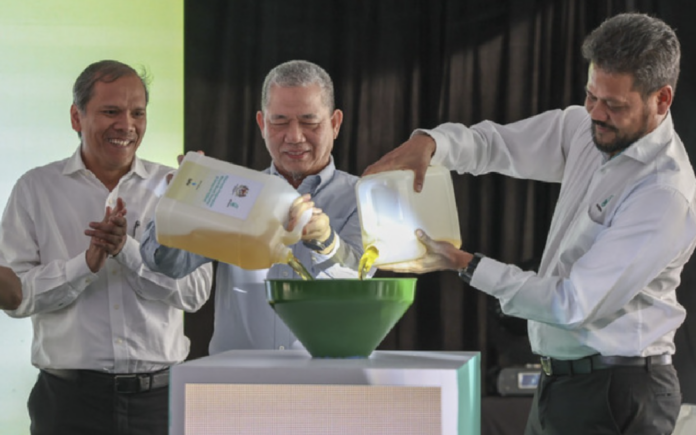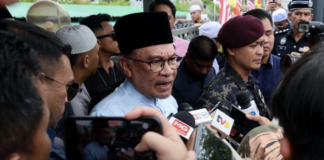PUTRAJAYA, July 18 — The Ministry of Plantation Industries and Commodities (KPK) together with Petronas have implemented an initiative to collect used cooking oil to be used as a main source of raw material to produce sustainable aviation fuel (SAF).
Deputy Prime Minister Datuk Seri Fadillah Yusof said for a start the programme will be implemented at Petronas station 1, Precinct 9 here, Petronas Subang Bestari and Petronas Kota Kemuning 1 at Shah Alam.
“The collection centres will be expanded nationwide in stages to include selected Petronas stations,” said Fadillah who is also Minister of Plantation and Commodities when launching the programme.
Waste cooking oil can be taken and sold at the participating petrol stations with each sale paid in credit points entered through the SETEL application and the points can be redeemed at any Petronas Station or Kedai Mesra.
Fadillah said the move was a proactive measure by Petronas as preparation in meeting the demands of the Carbon Offsetting and Reduction Scheme for International Aviation (CORSIA), which was developed by the International Civil Aviation Organisation (ICAO) to reduce the impact of carbon footprint and meet the carbon neutral growth target for the international aviation sector.
The pilot phase of CORSIA began in 2021, while phase one will start next year where participation by member countries, including Malaysia is voluntary, he said.
Starting in 2027, the use of SAF is mandatory for all ICAO member states.
Fadillah said the initiative also aims to meet the aspirations of sustainability goals and provide added value to the oil palm industry supply chain, which will have a positive impact on the price of palm oil.
“The government is committed to developing the oil palm related industry in an effort to improve the lives of entrepreneurs and smallholders as well as the people in this country,” he said.
Meanwhile, he said recycling used cooking oil can also be a source of side income for the community.
“Make used cooking oil recycling a practice as it is one of the key steps to developing a smart waste management solution which is able to be reprocessed into new products of high value and further open up opportunities to generate additional income for households,” he said.
















